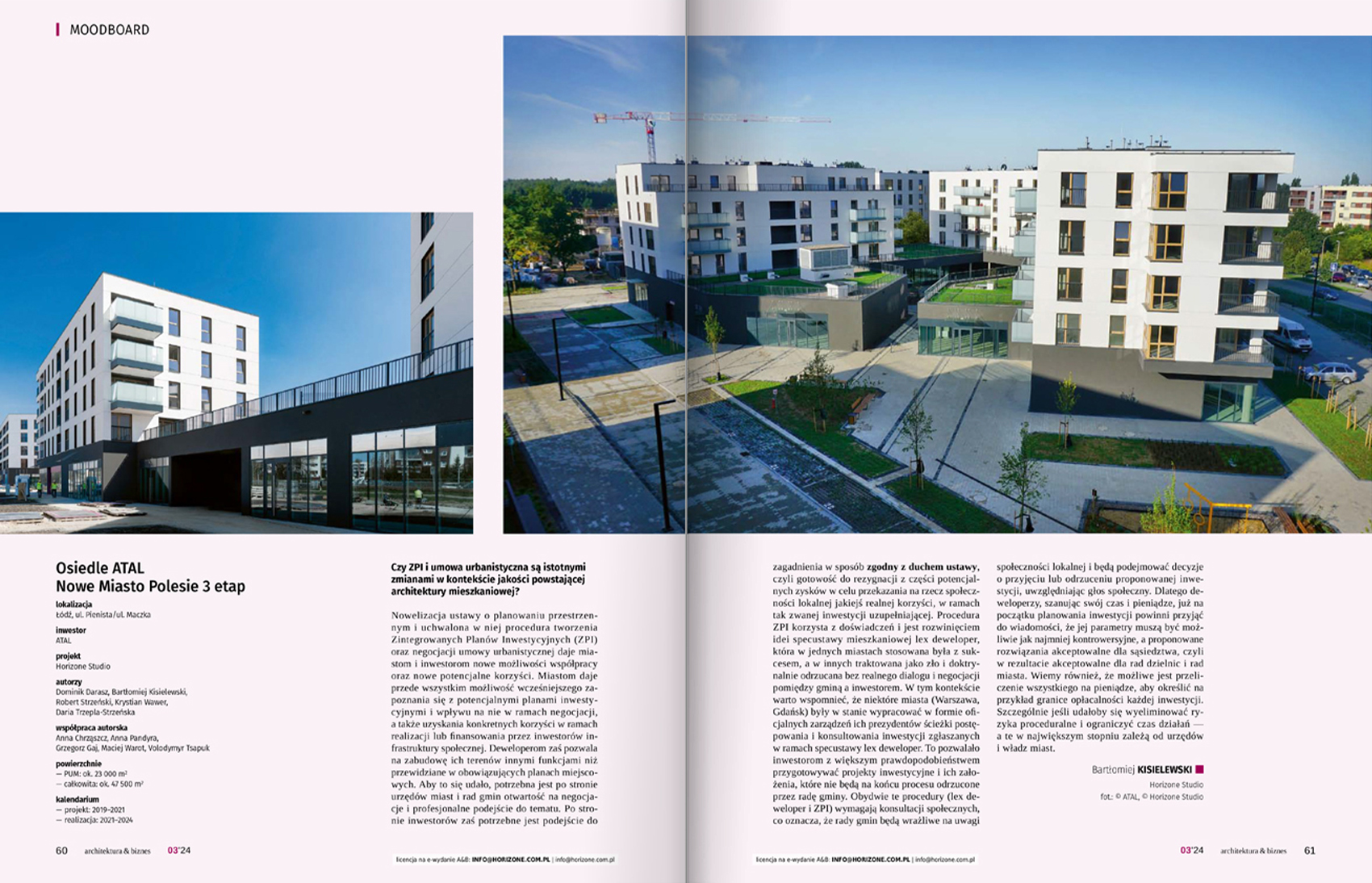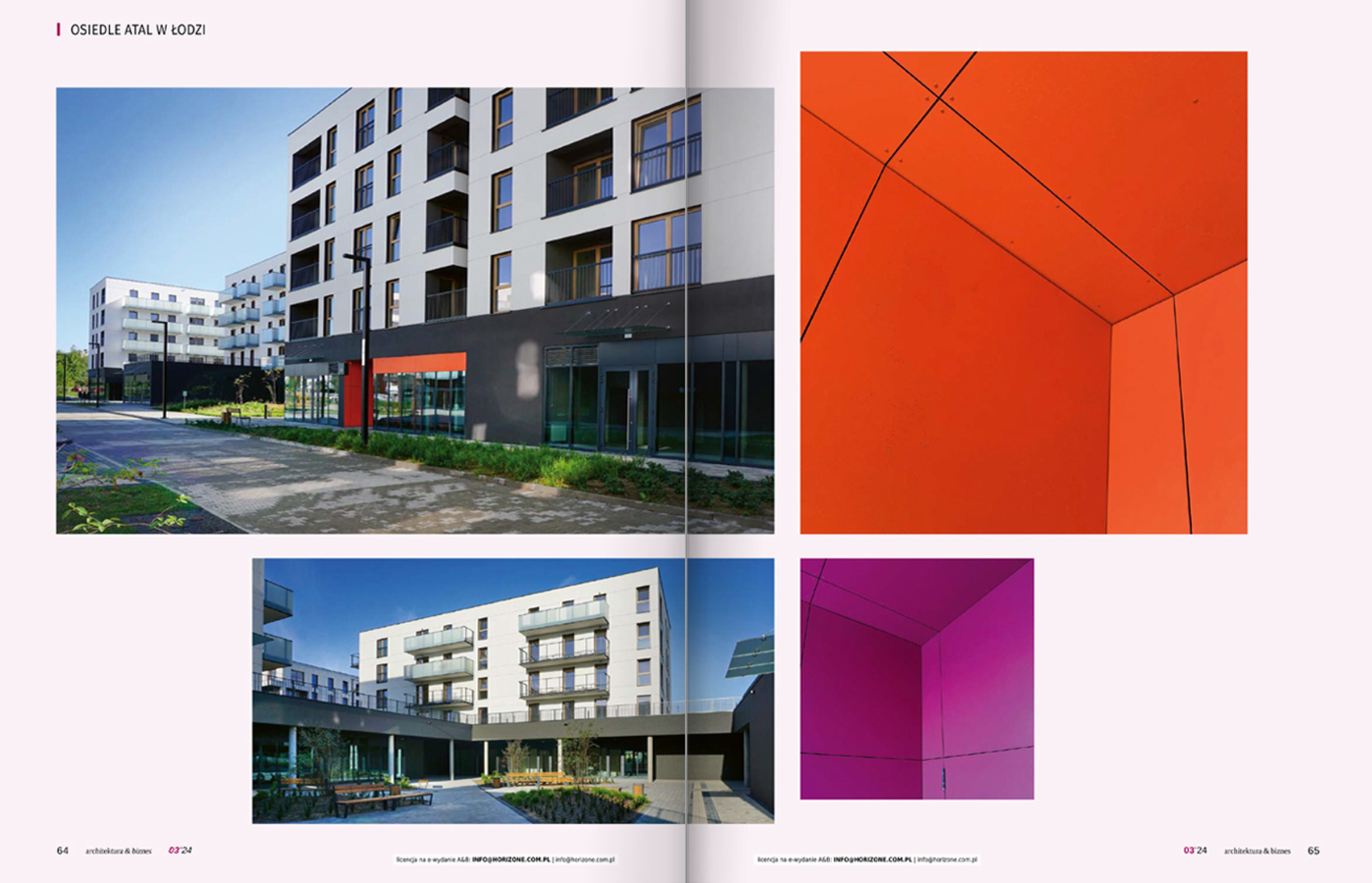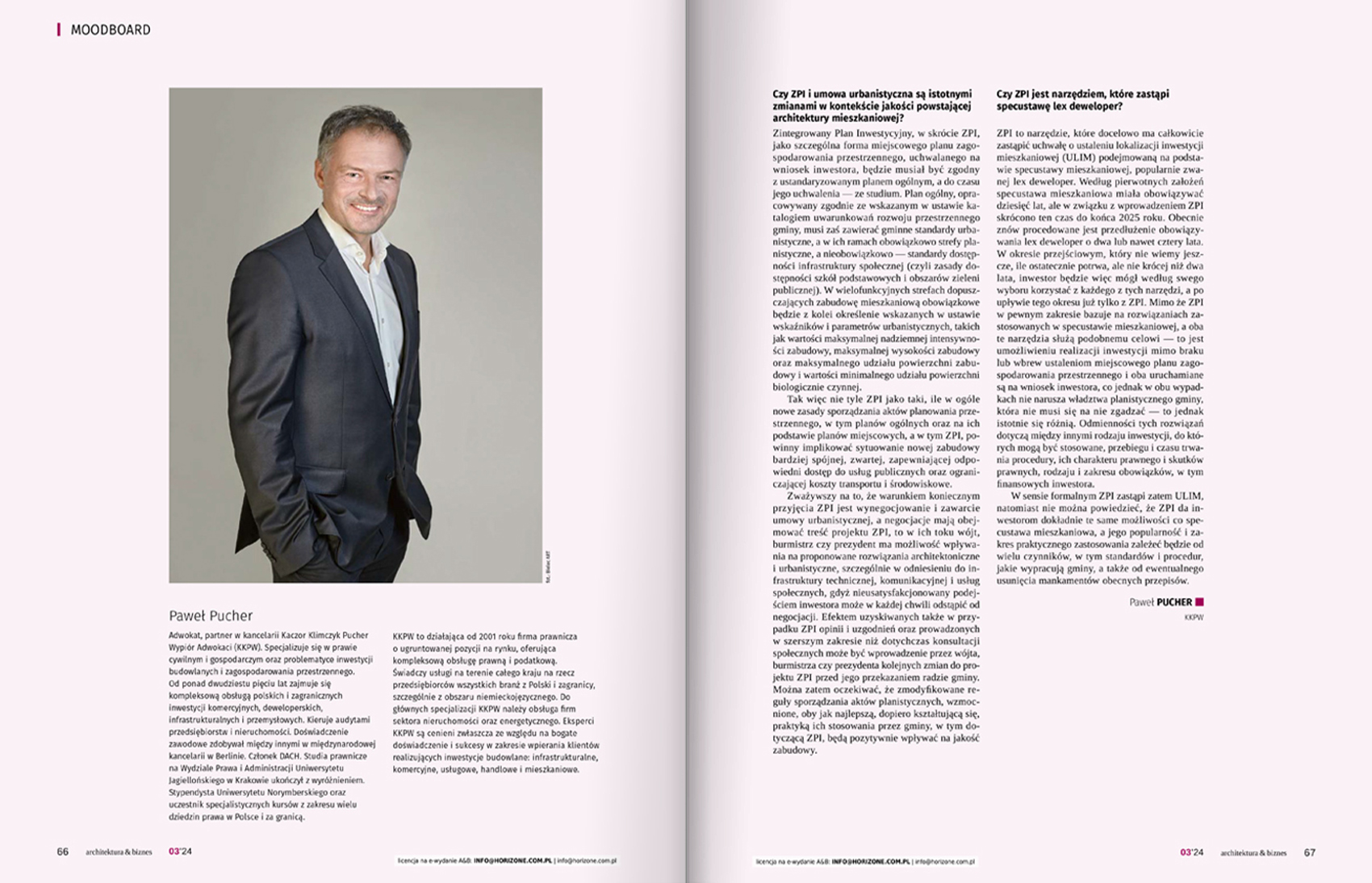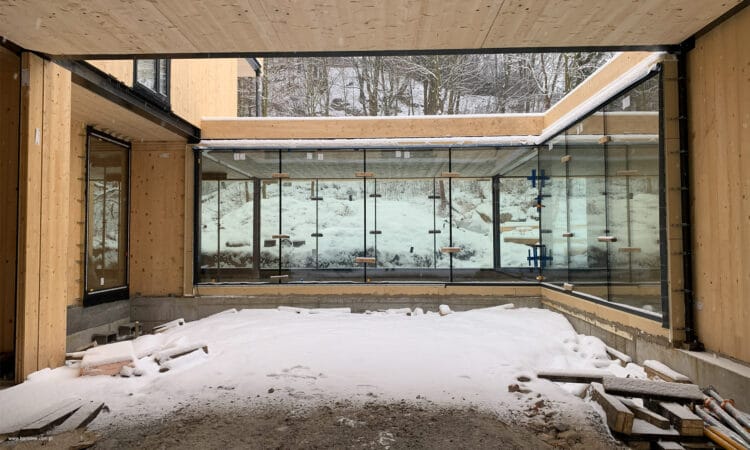Both of these procedures (lex developer and ZPI) require public consultations, which means that municipal councils will be sensitive to the comments of the local community and will make decisions to accept or reject a proposed investment, taking into account the public voice. Therefore, developers, respecting their time and money, should accept from the beginning of planning the investment that its parameters must be as uncontroversial as possible, and the proposed solutions acceptable to the neighborhood, that is, as a result, acceptable to neighborhood councils and city councils.
We also know that it is possible to convert everything into money to determine, for example, the limits of profitability of any investment. Especially if it would be possible to eliminate procedural risks and reduce the time for action – and these depend most heavily on city offices and authorities, says Bartlomiej Kisielewski for A&B.









